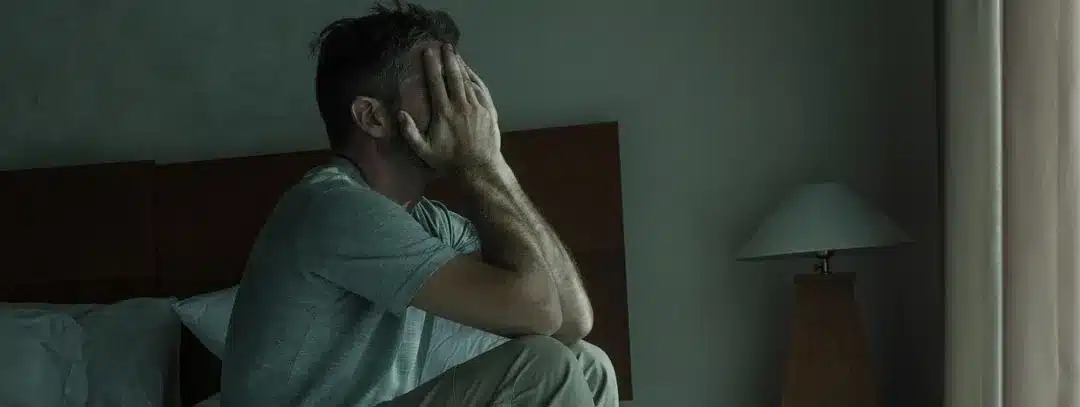Trauma IOP Programs for Arizona
Unlock healing with Purpose Healing Center’s specialized Trauma IOP programs in Arizona.
Intensive Outpatient PTSD and Trauma Treatment at Purpose
Once-weekly therapy is not always enough to address trauma-related disorders and symptoms. At the same time, not everyone who has endured a traumatic event needs or can go to an inpatient treatment program.
Intensive outpatient programs provide comprehensive treatment without the 24/7 supervision of an inpatient program. Purpose Healing Center provides intensive outpatient treatment for trauma survivors at our facilities in Phoenix and Scottsdale, Arizona.
At Purpose, we use trauma-informed therapies and a personalized, whole-person approach to treatment that helps clients in our programs achieve the best outcomes. So, how do you know if an intensive outpatient program (IOP) is right for you?
This blog post will go over who can benefit from IOP, reasons to choose an intensive outpatient program, and signs of post-traumatic stress disorder that may indicate a need for treatment. We’ll also discuss disorders that frequently co-occur with trauma and how to get in touch with Purpose.
Who Benefits From an IOP for Trauma and PTSD?
IOP is ideal for people with mental health concerns, addiction, or trauma-related symptoms that are manageable outside of IOP treatment hours. Here are some signs that you might be a good match for a trauma IOP program:
- You have a safe and supportive living environment.
- Your symptoms are not dangerous and can be managed outside of treatment hours.
- You want to continue fulfilling obligations like work, school, or caring for your home and family while getting trauma or PTSD treatment.
If you have completed a higher level of care (e.g., partial hospitalization, inpatient treatment), IOP can help you transition back into daily life and implement the coping skills you learn at treatment in real time.
Verify Your Insurance
Get Effective Trauma Treatment Options
IOP vs Partial Hospitalization Programs
Intensive outpatient programs meet about three days per week. If you want to get more intensive care than IOP can provide but still want or need an outpatient program, our partial hospitalization programming (PHP) might be a better starting point for you. Our partial hospitalization program for trauma-related disorders and symptoms meets five days per week.
3 Solid Reasons to Choose an Intensive Outpatient Program
Purpose Healing Center’s trauma IOP program works with trauma, complex trauma, and trauma disorders like PTSD. Here are some advantages of choosing an intensive outpatient program as someone who does not need inpatient care.
1) Flexibility and Cost
Intensive outpatient programs are flexible enough that you can work, attend school, or continue other external obligations while getting the help you need. IOP has a reduced time commitment compared to PHP, but it still offers comprehensive, in-depth treatment.
Purpose Healing Center believes that everyone should be able to access the care they deserve. We offer an evening IOP program and a daytime IOP program so that you can choose the right fit for your schedule.
One other benefit of choosing an IOP treatment program is the cost. Not only can you continue work if you need to, but the cost of outpatient services is usually lower than what you’d pay for inpatient care.
Purpose Healing Center takes most health insurance plans. When you call our admissions line, we can verify your health insurance coverage for rehab at our trauma IOP at Purpose in as little as a few minutes.
2) Living at Home or in Supportive Housing
Sometimes, clients who don’t need 24/7 supervision prefer living at home or in supportive housing as opposed to staying on-site in residential inpatient treatment.
This can be especially helpful for clients needing additional support in terms of life skills or vocational guidance.
3) Efficacy and Treatments
Purpose Healing Center uses the most research backed and effective trauma treatments. The scope of evidence-based treatments offered at our facility includes but is not limited to the following.
- Dialectical Behavioral Therapy (DBT).
- Trauma-Focused Cognitive Behavioral Therapy (TF-CBT).
- Eye Movement Desensitization and Reprocessing.
- Cognitive Processing Therapy.
- Prolonged Exposure Therapy.
- Medication Management.
- Somatic Experiencing.
- Family Therapy.
Our IOP treatment schedule for trauma includes group therapy, individual therapy sessions, and other mental health services. Your trauma treatment plan at Purpose Healing Center will be unique to you.
Understanding Post-Traumatic Stress Disorder
Not everyone who undergoes a traumatic experience will develop post-traumatic stress disorder (PTSD). However, it is a very common mental health condition, and we know that it is possible to heal. People with PTSD may experience a range of trauma-related symptoms that affect their daily lives and overall well-being.
Sometimes, people who have experienced trauma face challenges with emotional regulation, intense emotions, romantic partnerships and family relationships, or difficulty sleeping without knowing why. Often, these are PTSD or CPTSD symptoms that can indicate a need for support.
Knowing the signs of trauma-related disorders can help you identify a need for treatment. If you experience trauma-related symptoms such as those listed below, it may indicate a need for trauma or PTSD treatment.
The Most Common Mental Health Symptoms of Trauma
Psychological, social, and emotional symptoms of trauma are some of the most well-known battles among those living with PTSD. Common mental health symptoms seen in people with trauma disorders like PTSD include but aren’t limited to the following:
- Re-experiencing symptoms, like painful, traumatic memories or flashbacks.
- Feeling guilty or blaming oneself for traumatic events.
- Avoiding reminders of or thoughts about traumatic events.
- Loss of interest in important or enjoyable activities.
- Being easily startled.
- Engaging in reckless, risky, or destructive behavior.
- Feeling tense or on-edge.
- Social isolation or withdrawal from others.
- Trouble concentrating or focusing.
- Irritability, anger, or aggression.
- Intrusive thoughts.
- Depression symptoms.
While a significant portion of these symptoms can indicate PTSD, not everyone with PTSD will have every symptom of the disorder. PTSD can range in presentation and severity.
People who go through complex trauma may face additional symptoms, such as heightened emotional distress or difficulty with emotion regulation, trouble in interpersonal relationships, and their sense of self or identity. Complex trauma refers to repeated or chronic trauma.
What are the Physical Symptoms of Trauma?
Physical trauma symptoms can occur in addition to mental health symptoms. In some cases, people do not even realize that these symptoms are trauma related. It is very common for trauma survivors to experience physical symptoms such as the following:
- Sleep disturbance.
- Body aches and pains.
- Headaches.
- Gastrointestinal symptoms.
Research also shows a high correlation between trauma and some physical health conditions. Going through a traumatic event is stressful for the body. On top of co-occurrence with some physical conditions, many people who have endured a traumatic event, or who have PTSD, also face one or more additional mental health disorders.
Getting Help for Mental Health Disorders in Arizona
Eighty percent of people with PTSD meet the criteria for one or more other mental health conditions. Trauma survivors are at an elevated risk of substance abuse, mood disorders like bipolar disorder or depression, eating disorders, anxiety disorders, and other conditions (e.g., obsessive compulsive disorders).
Appropriate treatment for PTSD should always look at the whole person. Purpose Healing Center will screen you for co-occurring mental health conditions so we can address your full spectrum of needs.
Is Treatment for Trauma Covered by Insurance?
In many cases, both addiction and mental health are covered by insurances, in particular at Purpose. Our facilities proudly accept most forms of AHCCCS as well as many other private health insurance carriers as an in-network provider.
When you contact Purpose Healing Center, we’ll schedule your intake assessment, book a tour of our facility, or verify your health insurance for free. The admissions team at Purpose Healing Center is available 24/7.
Find Hope and Healing at Purpose Healing Center!
Choose Purpose Healing Center for Help With Trauma
Purpose Healing Center offers trauma-informed care that works. Our staff members are highly experienced in treating trauma-related conditions, and some even have personal experience with the concerns addressed at Purpose. We treat clients and their loved ones like family from the moment they walk through our doors.
Whether you want to learn about getting trauma treatment in an outpatient setting at Purpose or have another question we can help out with, call our admissions line today!
FAQs About Trauma IOP Programs in Arizona
Is IOP good for PTSD?
Yes. IOP is proven effective for symptom reduction in people with PTSD in research. Purpose Healing Center’s Phoenix and Scottsdale trauma IOP treatment options help clients develop skills like distress tolerance, interpersonal effectiveness, and healthy modes of self-soothing while living at home or in supportive housing.
What does IOP stand for in mental health?
IOP stands for “intensive outpatient program.” Mental health IOP meets regularly throughout the week for group therapy sessions and other treatments (e.g., at least once-weekly individual therapy).
Many providers define IOP as a level of care that exists in between a partial hospitalization program and a standard outpatient program. IOP for mental health and trauma should provide a combination of comprehensive care and flexibility.
What qualifies as trauma?
Trauma is an emotional response to a terrible or stressful event. Examples of traumatic events include but aren’t limited to accidents, natural disasters, physical health conditions (e.g., cancer), medical malpractice, sudden death of a loved one, domestic violence or abuse, sexual assault, violence, and war.
How do trauma disorders and PTSD develop?
You can develop trauma-related disorders like PTSD after experiencing or witnessing a traumatic event. It is also possible to develop what’s called secondary trauma, which is caused by indirect exposure to a traumatic event. For example, you might hear about traumatic events regularly at work.
References
- https://www.nimh.nih.gov/health/publications/post-traumatic-stress-disorder-ptsd
- https://www.ncbi.nlm.nih.gov/pmc/articles/PMC9037168/
- https://www.ncbi.nlm.nih.gov/pmc/articles/ https://www.ptsd.va.gov/professional/treat/cooccurring/ptsd_physical_health.asp
- https://www.ptsd.va.gov/professional/treat/cooccurring/index.asp
- https://www.apa.org/topics/trauma


